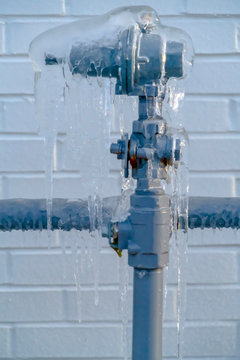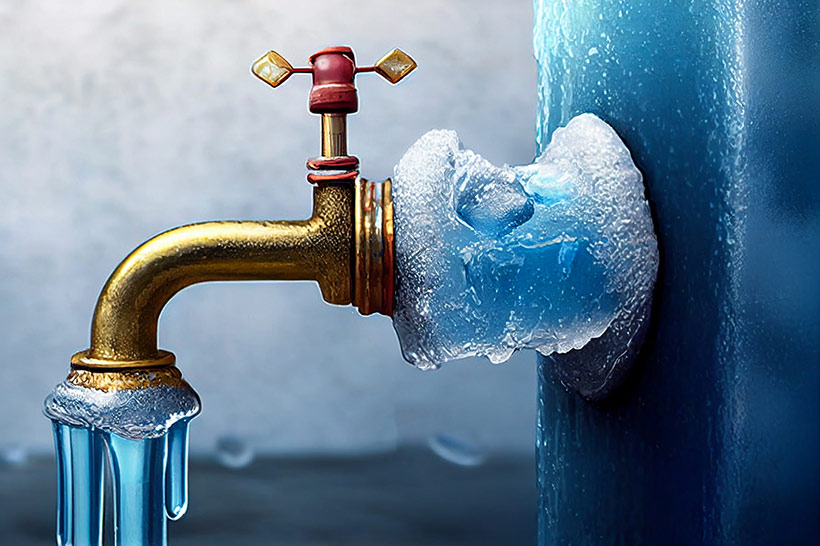Have you been in search of insight about How to Prevent Your Pipes From Freezing?

Cold weather can wreak havoc on your plumbing, particularly by freezing pipelines. Here's how to avoid it from occurring and what to do if it does.
Intro
As temperature levels drop, the risk of frozen pipelines increases, possibly leading to expensive repair services and water damage. Recognizing how to avoid icy pipes is critical for homeowners in cold climates.
Comprehending Frozen Pipes
What causes pipes to freeze?
Pipes ice up when revealed to temperature levels listed below 32 ° F (0 ° C) for expanded durations. As water inside the pipes freezes, it expands, taxing the pipeline walls and potentially creating them to break.
Dangers and damages
Frozen pipelines can cause water system disruptions, residential or commercial property damage, and pricey repair work. Ruptured pipes can flood homes and trigger extensive architectural damage.
Indicators of Frozen Pipeline
Recognizing frozen pipelines early can prevent them from rupturing.
Just how to recognize icy pipelines
Try to find reduced water circulation from faucets, unusual odors or sounds from pipelines, and visible frost on exposed pipes.
Avoidance Tips
Insulating prone pipelines
Wrap pipelines in insulation sleeves or use warmth tape to safeguard them from freezing temperature levels. Concentrate on pipelines in unheated or exterior locations of the home.
Heating methods
Maintain indoor areas sufficiently heated up, specifically areas with pipes. Open closet doors to enable warm air to circulate around pipelines under sinks.
Shielding Exterior Pipes
Garden hoses and outdoor taps
Detach and drain garden tubes prior to winter season. Install frost-proof faucets or cover outside faucets with shielded caps.
What to Do If Your Pipes Freeze
Immediate activities to take
If you presume frozen pipelines, keep taps available to alleviate stress as the ice melts. Make use of a hairdryer or towels soaked in warm water to thaw pipes gradually.
Long-Term Solutions
Architectural modifications
Take into consideration rerouting pipelines far from outside wall surfaces or unheated locations. Include additional insulation to attic rooms, cellars, and crawl spaces.
Updating insulation
Buy high-grade insulation for pipelines, attic rooms, and wall surfaces. Appropriate insulation helps maintain consistent temperature levels and lowers the danger of frozen pipes.
Verdict
Protecting against frozen pipes calls for positive steps and quick feedbacks. By comprehending the causes, indicators, and preventive measures, homeowners can protect their pipes during cold weather.
Helpful Tips to Prevent Frozen Pipes this Winter
UNDERSTANDING THE BASICS: WHY PIPES FREEZE AND WHY IT’S A PROBLEM
Water freezing inside pipes is common during the winter months, but understanding why pipes freeze, and the potential problems it can cause is crucial in preventing such incidents. This section will delve into the basics of why pipes freeze and the associated problems that may arise.
THE SCIENCE BEHIND FROZEN PIPES
When water reaches freezing temperatures, it undergoes a physical transformation and solidifies into ice. This expansion of water as it freezes is the primary reason pipes can burst. As the water inside the pipe freezes, it expands, creating immense pressure on the walls. If the pressure becomes too great, the pipe can crack or rupture, leading to leaks and water damage.
FACTORS THAT CONTRIBUTE TO PIPE FREEZING
- Low Temperatures: Extremely cold weather, especially below freezing, increases the risk of pipes freezing.
- Uninsulated or Poorly Insulated Pipes: Pipes located in unheated areas, such as basements, crawl spaces, or attics, are more prone to freezing. Insufficient insulation or lack of insulation altogether exacerbates the problem.
- Exterior Wall Exposure: Pipes running along exterior walls are susceptible to freezing as they encounter colder temperatures outside.
- Lack of Heating or Temperature Regulation: Inadequate heating or inconsistent temperature control in your home can contribute to frozen pipes.
PROBLEMS CAUSED BY FROZEN PIPES
WHY CERTAIN PIPES ARE MORE PRONE TO FREEZING
- Pipe Bursting: As mentioned earlier, the expansion of water as it freezes can cause pipes to burst, resulting in significant water damage.
- Water Damage: When pipes burst, it can lead to flooding and water damage to your property, including walls, ceilings, flooring, and personal belongings.
- Structural Damage: Prolonged exposure to water from burst pipes can compromise the structural integrity of your home, leading to costly repairs.
- Mold and Mildew Growth: Excess moisture from water damage can create a favorable environment for mold and mildew growth, posing health risks to occupants.
- Disrupted Water Supply: Frozen pipes can also result in a complete or partial loss of water supply until the issue is resolved.
https://busybusy.com/blog/helpful-tips-to-prevent-frozen-pipes-this-winter/
- Location: Pipes located in unheated or poorly insulated areas, such as basements, crawl spaces, attics, or exterior walls, are at higher risk of freezing.
- Exterior Pipes: Outdoor pipes, such as those used for irrigation or exposed plumbing, are particularly vulnerable to freezing as they are directly exposed to the elements.
- Supply Lines: Pipes that carry water from the main water supply into your home, including the main water line, are critical to protect as freezing in these lines can affect your entire plumbing system.
- Underground Pipes: Pipes buried underground, such as those connected to sprinkler systems or outdoor faucets, can be susceptible to freezing if not properly insulated.

I found that content on Winter Plumbing Precautions: Preventing Frozen Pipes while doing a lookup on the search engines. Sharing is good. Helping others is fun. Many thanks for your time. Don't hesitate to visit our website back soon.
Visit My Website
Comments on “Protecting Your Pipes from Freezing: Best Tips”